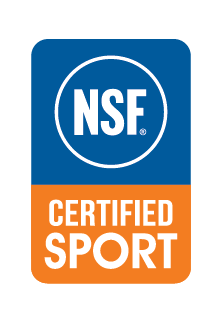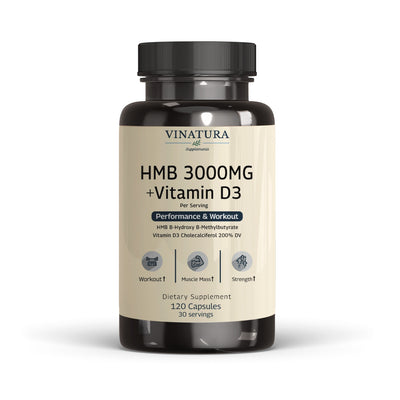
Will Quitting Smoking Increase Testosterone?
It’s long been known that smoking has harmful effects on health, negatively impacting the cardiovascular, respiratory, reproductive, and endocrine systems. With that in mind, many people believe that quitting smoking may help boost testosterone levels and restore hormonal balance in men.
However, the reality is far more complex. In fact, several pieces of evidence show the opposite or demonstrate that the endocrine system cannot be restored simply by giving up cigarettes.
To better understand this issue, let’s explore the topic in detail and answer the question: “Will quitting smoking increase testosterone?”
Before exploring further, please read the disclaimer located at the end of this webpage.
Key Takeaways
- Many studies show that testosterone levels do not significantly change immediately after quitting smoking.
- Cigarettes contain thousands of harmful substances that promote oxidative processes and negatively impact fertility such as reducing sperm count, impairing sperm motility, and increasing abnormalities in sperm morphology.
- Quitting smoking may cause a temporary spike in cortisol, leading to symptoms like fatigue, reduced libido, and muscle weakness.
- A healthy lifestyle including proper exercise, good nutrition, adequate sleep, and reduced stress is more effective in supporting healthy testosterone levels.
Will Quitting Smoking Increase Testosterone?
Quitting smoking can significantly improve cardiovascular and lung health, as well as mental well-being, but its effect on testosterone levels varies between individuals.
In general, quitting smoking does not result in an immediate change in testosterone. This might sound surprising, but the underlying mechanisms are fairly straightforward.
Specifically, a meta-analysis involving over 13,000 men found that smokers had overall higher testosterone levels compared to non-smokers (Zhao, et al. 2016).
While this may seem counterintuitive, it is mainly due to the fact that nicotine and its metabolites slow down the breakdown of testosterone in smokers. This is one reason why smokers may temporarily exhibit higher testosterone levels than non-smokers.
In another study involving 50 participants, 25 of whom were smokers and it was observed that smokers had higher testosterone levels primarily due to increased SHBG (sex hormone-binding globulin), a protein that binds to testosterone.
However, there was no difference in free testosterone levels between the two groups. After quitting smoking, SHBG levels were found to decrease, while no change was observed in bioavailable testosterone levels (PJ Pugh, et al. 2023). This further supports the notion that quitting smoking does not significantly alter testosterone levels.
To reinforce this evidence, another trial even showed a slight (insignificant) decrease in total testosterone levels following smoking cessation (H Hruškovičová, et al. 2012).
This suggests that the body does not instantly recover or regenerate upon quitting smoking. On the contrary, while smoking might temporarily raise some hormone levels or alter SHBG, quitting does not lead to a dramatic or rapid increase in testosterone.
In fact, some individuals have reported subjective experiences of declining testosterone after quitting. For example, one user on Reddit shared:
“I've just quit smoking a week ago, and I'm feeling very severely the drop in testosterone. Zero libido, feeling of weakness, flaccid penis, low energy, depression... These symptoms were not present before quitting…”*
In other words, the endocrine system which includes the pituitary gland and testes is complex and influenced by numerous factors such as nutrition, sleep, and stress.
When someone quits smoking, the body enters a detoxification phase and slowly begins to adjust. If nicotine previously stimulated certain hormonal responses, its absence can lead to a temporary hormonal shift that takes time to rebalance.
How Does Tobacco Affect Testosterone and Fertility?

Overall, it can be said that smoking severely impairs fertility in both men and women. However, in men, despite having a reproductive system that is generally less sensitive than that of women, smoking still causes significant damage.
Notably, several studies have identified specific mechanisms by which tobacco negatively impacts male fertility.
First, cigarette smoke contains over 4,000 harmful chemicals, including nicotine, carbon monoxide, and heavy metals that create oxidative stress in the body’s cells. This oxidative process elevates free radicals, damaging sperm DNA and cells in the gonads (Qiao et al. 2015).
These reactions reduce sperm quality and sperm count, reflected in lowered sperm concentration, reduced motility, and higher rates of morphological abnormalities.
For example, a large-scale study in Pakistan revealed that smoking significantly decreased sperm count and the percentage of normal sperm, primarily due to oxidative damage (Rehman et al. 2019).
Additionally, nicotine has a disruptive impact on the endocrine system. Specifically, it directly affects Leydig cells in the testes, which are responsible for producing testosterone.
In one animal study, both smoking and nicotine injection significantly reduced testosterone levels. This finding is based on a single animal study, so its relevance to humans remains uncertain. Moreover, tobacco damages the vascular function of the testes.
Nicotine and other toxins circulating in the bloodstream trigger vasoconstriction, reducing blood flow to the testes. This organ is particularly sensitive to oxygen deficiency, and long-term smoking diminishes testicular function resulting in impaired spermatogenesis and lower sperm production (Qiao et al. 2015).
Furthermore, another review noted that testosterone levels tend to increase with the number of cigarettes smoked per day. However, this rise may be a compensatory response or related to alterations in SHBG (sex hormone-binding globulin) levels (Johan et al. 2006).
While debates continue regarding the effects of tobacco on male steroid hormones, past literature remains inconsistent, and post-cessation data is limited. Therefore, this article does not further elaborate on that aspect.
In summary, tobacco simultaneously damages sperm quality and fertility, negatively affects the testes, and alters hormone levels leading to unstable testosterone concentrations.
How to Recognize Low Testosterone After Quitting Smoking
When you quit smoking, your body undergoes a variety of physiological changes, including shifts in hormone levels. Common symptoms that may emerge include fatigue, low libido, erectile dysfunction, reduced muscle strength, sleep disturbances, and mood swings, all of which are classic signs of low testosterone.
However, some symptoms such as irritability, fatigue, poor concentration can be harder to distinguish. These signs may result from nicotine withdrawal rather than directly from low testosterone. Therefore, if these symptoms persist, it is advisable to consult a physician and get your blood testosterone levels tested.
One major factor to consider is cortisol, the so-called “stress hormone.” The stress of quitting and its physiological turbulence can increase both psychological and physical strain. Chronically elevated cortisol suppresses the HPA/HPT axis (hypothalamus-pituitary-testes), which in turn reduces testosterone production (Cumming et al. 1983).
For this reason, alongside testosterone tests, measuring cortisol levels is also recommended. If both cortisol is high and testosterone is low, your doctor will likely consider balancing both hormones together.
Lastly, remember that low testosterone symptoms may be caused by multiple factors, including poor sleep, stress, or inadequate nutrition.
When in doubt, it is crucial to evaluate additional markers such as pituitary hormones (LH, FSH) and SHBG. Relying solely on total testosterone could lead to misleading conclusions. A comprehensive hormonal profile will help identify the root cause and guide appropriate treatment.
Can You Smoke While on Testosterone?
If you are undergoing testosterone replacement therapy (such as injections, gels, or patches), the short answer is: you should not smoke. This is because testosterone therapy stimulates red blood cell production, which can thicken the blood.
When combined with smoking, a known risk factor for vascular problems, you may face serious complications like thrombosis or blood clots.
Moreover, smoking reduces respiratory function and increases the risk of pulmonary conditions such as chronic obstructive pulmonary disease (COPD), lung cancer, and other respiratory illnesses (American Lung Association).
From a pulmonary health perspective alone, there is no justification for smoking while on testosterone therapy.
To maximize the benefits of hormone replacement therapy and reduce associated risks, the best approach is to quit smoking as soon as possible. Doing so will improve blood circulation and oxygen levels, both of which are essential for optimizing treatment outcomes.
Lifestyle Changes to Support Testosterone Balance

One of the most effective ways to support and maintain healthy testosterone levels is by adopting a healthier lifestyle. You can start with small, consistent habits such as:
- Exercising regularly, especially endurance training and resistance exercises. These activities help maintain a healthy weight, limit obesity, and improve male hormonal balance.
- Optimizing your diet with testosterone-friendly foods rich in zinc, vitamin D, healthy fats, and green vegetables. Avoid fast food, sugary products, trans fats, and alcohol.
- Getting enough sleep, ideally 7–8 hours per night, which helps restore hormonal balance naturally.
- Managing stress and keeping a positive mental state. Regular relaxation practices like meditation, walking, yoga, or strengthening social connections can effectively reduce stress levels.
In summary, regular physical activity, a nutritious and balanced diet, adequate sleep, and stress management are key to optimizing testosterone. These habits not only boost your hormonal health but also improve your overall physical and mental well-being.
Frequently Asked Questions
1. Does Smoking Weed Affect Testosterone?
Yes. THC in marijuana may affect reproductive hormones. According to Dr. Jamie Lo, MD, Associate Professor of Obstetrics and Gynecology (Maternal-Fetal Medicine) at OHSU and researcher at the Oregon National Primate Research Center, a study on adult primates showed that daily THC use reduced testicular volume by over 50% and significantly lowered testosterone levels (OHSU).
Although these are animal studies, they suggest that long-term marijuana use may reduce testosterone in humans. More human studies are needed, but early evidence advises caution if you're concerned about reproductive hormones.
2. Does Smoking Lower Testosterone?
Research on smoking and testosterone is complex. Some studies found that smokers had slightly higher average testosterone levels than non-smokers, possibly due to nicotine metabolism, like cotinine inhibiting testosterone breakdown (Zhao et al., 2016).
However, nicotine has also been shown to suppress Leydig cell function in animal studies (Qiao et al., 2015), which may decrease testosterone production.
Because this evidence comes from animal studies, its applicability to human testosterone regulation is limited. In short, smoking is not a reliable method for stabilizing hormones, it may cause fluctuations in testosterone while also introducing serious health risks.
3. How Long After Quitting Smoking Will Testosterone Increase?
There’s no exact timeline, as hormonal recovery depends heavily on individual differences. In fact, one study tracking men for a year after quitting found that total testosterone levels slightly decreased, though not significantly (Hruškovičová et al., 2012).
Any increase in testosterone after quitting is more likely due to long-term health improvements, such as weight loss and better nutrition, rather than a direct effect of quitting smoking. Over the long term (1–2+ years), overall health restoration can indirectly support hormonal recovery, depending on lifestyle quality.
4.Why Do Smokers Have Higher Testosterone?
This observation has been noted in several studies. A meta-analysis by Zhao et al. found that smokers had average testosterone levels about 1.53 nmol/L higher than non-smokers (Zhao et al., 2016). This might be due to inhibited testosterone breakdown or measurement bias involving SHBG levels.
However, findings remain inconsistent across research, and elevated testosterone in smokers isn’t necessarily caused by smoking itself. In short, this doesn’t mean smoking is healthy or beneficial for testosterone, it still comes with numerous serious health risks.
Conclusion
Quitting smoking is undeniably one of the smartest decisions you can make for your health, it reduces the risk of heart disease, cancer, and numerous other serious conditions. However, increasing testosterone after quitting smoking is not straightforward and doesn’t happen immediately.
Hormonal improvements depend on various factors such as individual endocrine function, stress levels, diet, and lifestyle. Therefore, it's crucial to adopt a healthy lifestyle and seek regular check-ups if you're concerned about your testosterone levels.
Testimonial Disclaimer
*The testimonials presented on this website are provided by individuals based on their personal experiences with our products. These testimonials represent individual opinions and experiences, which may not be typical or applicable to all users of our products. Results may vary depending on a variety of factors, including individual health, lifestyle, and adherence to product usage instructions.References
- [1] Zhao, Jie, et al. “Cigarette Smoking and Testosterone in Men and Women: A Systematic Review and Meta-Analysis of Observational Studies.” Preventive Medicine, vol. 85, Elsevier BV, Apr. 2016, pp. 1–10, https://doi.org/10.1016/j.ypmed.2015.12.021.
- [2] PJ Pugh, English. “Effect of Cigarette Smoking on Levels of Bioavailable Testosterone in Healthy Men.” Clinical Science (London, England : 1979), vol. 100, no. 6, Clin Sci (Lond), 2023, pubmed.ncbi.nlm.nih.gov/11352783/.
- [3] H. HRUŠKOVIČOVÁ, et al. “Effects of Smoking Cessation on Hormonal Levels in Men.” Physiological Research, Institute of Physiology of the Czech Academy of Sciences, Feb. 2013, pp. 67–73, https://doi.org/10.33549/physiolres.932326.
- [4] Qiao, Zhong-Dong, et al. “The Hazardous Effects of Tobacco Smoking on Male Fertility.” Asian Journal of Andrology, vol. 17, no. 6, Medknow, 2015, p. 954, https://doi.org/10.4103/1008-682x.150847.
- [5] Rehman, Rehana, et al. “Relationship between Smoking Habit and Sperm Parameters among Patients Attending an Infertility Clinic.” Frontiers in Physiology, vol. 10, Frontiers Media, Oct. 2019, https://doi.org/10.3389/fphys.2019.01356.
- [7] Johan Svartberg, and Rolf Jorde. “Endogenous Testosterone Levels and Smoking in Men. The Fifth Tromsø Study.” Andrology, vol. 30, no. 3, Wiley, Nov. 2006, pp. 137–43, https://doi.org/10.1111/j.1365-2605.2006.00720.x.
- [8] CUMMING, D. C., et al. “Acute Suppression of Circulating Testosterone Levels by Cortisol in Men*.” The Journal of Clinical Endocrinology & Metabolism, vol. 57, no. 3, Oxford University Press, Sept. 1983, pp. 671–73, https://doi.org/10.1210/jcem-57-3-671.
- [9] American Lung Association. “Health Effects of Smoking.” Lung.org, 2020, www.lung.org/quit-smoking/smoking-facts/health-effects/smoking
Author

Product Disclaimer
Including an ingredient or study does not evaluate, endorse, or recommend any Vinatura product or any third-party product. Some ingredients discussed may not be used in any Vinatura product.
The content of the articles has not been evaluated by the Food and Drug Administration (FDA) and is not intended to promote or endorse any specific product. Any products sold on this website are not intended to diagnose, treat, cure, or prevent any disease.
Opinions and Endorsements
Any claims, statements, or opinions expressed in the articles are those of the author(s) and do not necessarily reflect the views or opinions of the manufacturers of the dietary supplement products. The products sold on this website are separate from the content of the articles and are not directly endorsed or associated with the information presented here.
Liability Disclaimer
The author(s) of the articles, website, and manufacturers of the dietary supplement products do not assume any liability for any potential consequences arising from the use of the information provided in the articles. Ingredient effects, dosages, and safety vary by individual, formulation, and context; some ingredients interact with medications or may be unsuitable during pregnancy or lactation. It is recommended that individuals consult with a qualified healthcare professional before making any dietary or lifestyle changes, including the use of dietary supplements.
Product Usage
Please refer to the product labels and packaging for specific usage instructions and guidelines for the dietary supplement products sold on this website.
Customer Support
For any concerns or questions regarding the dietary supplement products, please contact our customer support team, who will be more than happy to assist you.






Leave a Comment
Be the first to comment.
What do you think?